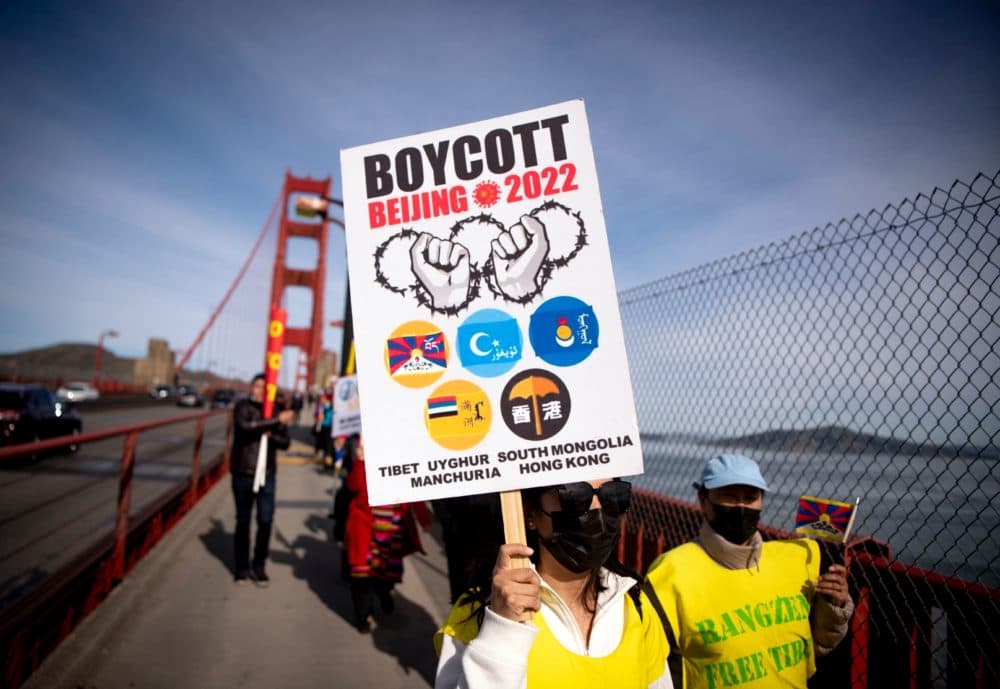Advertisement
The history — and future — of Olympic boycotts
Resume
The Winter Olympics are underway in China with Americans already capturing medals in skiing, snowboarding and team figure skating events. But notably absent from Beijing are U.S. diplomatic representatives.
The U.S. is engaging in a diplomatic boycott, along with a handful of other countries, in order to call attention to China's alleged human rights abuses. This isn't the first time a form of boycott has been used at the Olympic games to make a political point; in fact, it draws upon a long tradition.
Host Scott Tong discusses this history of Olympic boycotts with Jules Boykoff, a former Olympic soccer player whose books include "Power Games: A Political History of the Olympics."
This segment aired on February 8, 2022.